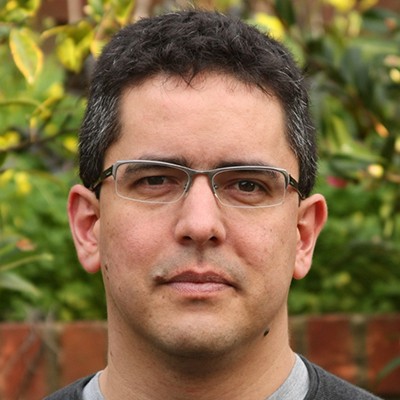Stephen McDonald
Stephen McDonald is a software engineer who has worked in the web development space since the late 90s, when Netscape Gold and ICQ reigned supreme.
Currently Stephen works with several startups using Python and Django. By day he's the technical lead at Mathspace, applying machine learning techniques to transform maths education. By night he works on scaling the news reader Kouio, to handle hundreds of millions of news articles from around the world.
Somewhere in between these, Stephen is also the creator and maintainer of Mezzanine, one of the most popular CMS projects for the Django framework.
Topic: Rapid Web Development with Mezzanine
The modern world of Python web development is chock-full of choices today - do we use a micro or a monolithic framework? Do we use a CMS or roll our own? Mezzanine is one project that aims to simplify these questions with a compelling offering for developing Python powered websites.
In this talk, Stephen McDonald the creator of Mezzanine will walk through the history of Mezzanine, covering the constraints that have dictated its design, its approach to providing simple yet flexible, rapid web development, through to the software eco-system and community that have developed around it.

Jessica McKellar
Jessica McKellar is an entrepreneur, software engineer, and open source developer from Cambridge, Massachusetts, USA. She is a Director for the Python Software Foundation and an organizer for the largest Python user group in the world. With that group she runs the Boston Python Workshop -- an introductory programming pipeline that has brought hundreds of women into the local Python community and is being replicated in cities across the US. Jessica is a veteran open source contributor and a maintainer for several open source projects, including OpenHatch and the Twisted event-driven networking engine; she wrote a chapter on Twisted for The Architecture of Open Source Applications Volume II and the second edition of O’Reilly’s Twisted Networking Essentials.
In a PyCon US 2014 keynote, Jessica McKellar outlined the programming-education problem that exists in US high schools, but she also highlighted some steps the community could take to help fix it. Besides, the Python Software Foundation is ready to help, including looking to fund grant proposals for Python-education-related projects. Here's her challenge for the community: by next year's PyCon, we would like to see every folk does one thing to further the cause of the next generation of Python programmers.

Wes McKinney
Wes McKinney is an open-source Python hacker, author, and entrepreneur. He's the creator of pandas and author of O'Reilly book Python for Data Analysis. Currently, he is the Founder and CEO of DataPad, a new analytics and business intelligence company based in San Francisco. He has also been an occasional contributor to statsmodels. He started building pandas at AQR Capital Management in response to the growing need for better data manipulation tools in Python for business analytics and data science use cases.
Topic: Python-powered Business Analytics
Abstract: In this talk, I'll discuss how the modern Python stack has enabled innovation in business analytics and general purpose small, medium, and big data workflows. I'll talk about how the architecture of pandas and related projects will need to adapt and grow to suit the needs of the next decade of data analysis. Lastly, I will also give an overview of how this all relates to my company: DataPad, an early-stage business intelligence company.

Fernando Pérez
Fernando Pérez is a research scientist at UC Berkeley, working at the intersection of high-level scientific computing with open tools and brain imaging. He started the IPython project in 2001, while a graduate student in Physics at CU Boulder. He continues to lead a talented team (who do all the hard work) to develop IPython as the interface between the humans at the keyboard and the bits in the machine.
He is a founding member of NumFOCUS, a PSF member, and received the 2012 Award for the Advancement of Free Software for IPython and his contributions to scientific Python. He is a founding investigator of the Berkeley Institute for Data Science, created in 2013.
When he can get away from a computer, Fernando tries to enjoy the mountains and the outdoors hiking, backpacking and climbing. For more information, see http://fperez.org.
Topic: Open Source and Open Science: how Python and its community made me a better scientist
Abstract: I will discuss the intersection of Open Source and scientific research, focusing on the positive impact that Open Source tools and ideas, and the Python community in particular, have had on the world of science. Scientific research is at a crossroads, under increasing pressure to justify itself to society at large and with very real questions being asked about the reproducibility of scientific results and access to the products of science. The Open Source community have created both technical and cultural solutions to similar problems that we as scientists can learn from. The Python language has also made major inroads into research and education, helping foster a culture of better computational research and opening up a space for a lot of creativity at the intersection of science and computing.

Andreas Klöckner
Andreas Klöckner is an assistant professor in the scientific computing group within the Department of Computer Science at the University of Illinois at Urbana-Champaign. He works on high-order numerical methods for the simulation of wave problems as well as issues in high-performance scientific computing that relate to bringing these methods to life on large-scale parallel computers. In support of his research, Dr. Klöckner has released numerous software packages for scientific computing in Python, including PyOpenCL, PyCUDA and the PuDB Python debugger. He obtained his PhD degree at the Division of Applied Mathematics at Brown University with Jan Hesthaven, working on large-scale finite element simulations of wave problems in the time domain. From Brown, Klöckner moved to the Courant Institute of Mathematical Sciences at New York University as a Courant Instructor, where he worked on integral equation methods and fast algorithms within Leslie Greengard's group.
(Invited talk, not plenary)

Built with Django and Mezzanine by PyCon Taiwan
Hosting provided by StreetVoice.
Bugs or wheels? Feedback and support here.
More on contact organizers@pycon.tw
























